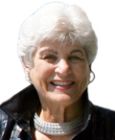
Aging
“Mirror Mirror on the Wall, Who Is the Fairest of Them All?”
We want to live longer but not look like it.
Posted September 15, 2011
Clearly that is a question many are asking. Women, and now men, are flocking to plastic surgeons; anti-aging skin cream sells well even during hard economic times. In 2010 there were 84,685 surgical procedures like face-lifts, eyelid operations, liposuctions, breast reductions, forehead lifts, breast lifts and breast augmentations for those over 65 (New York Times, August 9, 2011).
What does this mean? It could mean that we want to live longer but don't want to look like we are living longer. Why are we so preoccupied with changing our looks, with trying to put on a false face? I think it reflects our negative views of aging, our fear of aging, our resistance to reality.
The demographic reality is that nearly one in five Americans will be over the age of 65 (The Maturing of America, 2011). This is big news. The "U.S. Census Bureau announced that, within 10 years and for the first time in history, old people will outnumber young people across the globe...Yet whenever this demographic shift comes up, it is presented as...a calamity...It is, frankly, insane to look at an aging population and not rejoice."
So if we should rejoice, does that mean we continue with surgery to make ourselves look young or do we turn our focus to overall wellness? Dr. Kevin O'Neil, Medical Director of the Brookdale Senior Living and Medical Advisor, Institute for Optimal Aging suggests that: "The six dimensions of Optimum Life provide a great framework for a holistic approach to chronic disease management."
• Intellectual – Explore your outer and inner world; be curious.Try new things, take new paths. Do a familiar thing in a new way. Be open to culture, art, ideas, novelty.
• Physical – Exercise Plan ... It is important for all adults to get 30 minutes of moderate intensity exercise most days of the week and to have strength and flexibility exercises twice per week.
• Social – The Social Dimension is about our connection to others and the creation and maintenance of healthy relationships...According to The Successful Aging study... social support and social connections are more important predictors of longevity than chronic illness.
• Emotional – Finding ways to express your emotions positively can help you get balance and gain control...Humor and laughter have been demonstrated to alleviate stress, improve mood and boost the immune system. Other stress management techniques include relaxation and guided imagery which can help to bring about good things related to the management of your condition....If you are having trouble coping, finding that you can't get moving, aren't interested in your normal activities, have a decreased appetite, have trouble sleeping or other such symptoms, get help immediately.
• Spiritual – Your spirituality is very personal... Find a spiritual practice that is in line with your beliefs and do it consistently. Setting aside a small part of your day in this pursuit will have a profound impact on your overall wellness.
• Purposeful – Engage in rewarding activities. Use talents and experience in a meaningful way. Contribute to your community. Master new skills. Strive to make the world a better place.
Back to mirror mirror on the wall. Focusing on Dr. O'Neil's six dimensions of wellness, rather than rearranging your face and body through surgery, will benefit you in the long run. No matter what we do, we will accumulate wrinkles and we will continually be disappointed in our image. If, instead, we focus on a purposeful life, and keep our intellectual, social and spiritual life energized we will be able to look at ourselves in the mirror and say, "job in progress, job well done."
Nancy K. Schlossberg
Author, Revitalizing Retirement: Reshaping Your Identity, Relationships, Purpose
Copyright 2011

